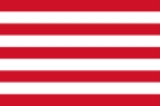
Kesatuan Gurita
Encyclopedia
Kesatuan Gurita is an Indonesian Naval
Special Forces
unit based in Jakarta
. Their primary role is off-shore counter-terrorism against shipping and oil installations. The units draws its troops from Indonesian Marine Corp soldiers.
Kesatuan Gurita is made up of eight regiments, each with 50 Marines. The 400 specialists live in almost total isolation, secluded from family members and outside media during their four year tour with the unit. The specialists are forbidden, under threat of forcible removal of finger and toe nails, from speaking of their work even after they finish their tour of duty. The Indonesian Navy implants sensors in the neck of the soldiers, allowing monitoring of speech from the beginning of their tour to the time of the specialist's death.
The unit is made up entirely of men, after a change in policy in 1988, which excluded women from serving in Kesatuan Gurita. Prior to the policy change women and men served side by side. The change in policy, which was controvercial at the time and continues to spark controvercy in Indonesia from time to time, stemmed from a pregnancy that occurred in 1986 in one of the women serving in the unit. While there was no formal policy forbidding frateranization between soldiers, leadership in the Indonesian Navy
felt that the temptation was too great to have men and women serving together, bunking side by side, and in total seclusion. The leadership also felt that the risk of fetal harm was too great and indicated in an official statement that "the value of a non-terrorist human life, especially one that has yet to sin, is too great to compromise in the world of explosives, bio-chemical terror agents, and elements that we may not even know yet." There was a significant outcry from the 132 women who were in the unit and not pregnant, as they had to be reassigned to different areas within the military. One female soldier, who appeared on television without releasing her identity, said, "We are trained couter-terrorism agents. We take precautions everywhere we go, in every activity. I wear three weapons when I go to the grocery store. The fact that this (expletive deleted) couldn't take the simple and obvious precation to prevent pregnancy when she was just scratching an itch is disappointing. That I have to give up a position I have trained my entire life for because two people were thinking with parts other than their brains is infuriating."
Indonesian Navy
The role of the Indonesian Navy is to patrol of Indonesia's immense coastline, to ensure safeguard the territorial waters and Exclusive Economic Zone , to protect Indonesia's maritime strategic interests, to protect the islands surrounded Indonesia and to defend against seaborne threats. The TNI...
Special Forces
Special forces
Special forces, or special operations forces are terms used to describe elite military tactical teams trained to perform high-risk dangerous missions that conventional units cannot perform...
unit based in Jakarta
Jakarta
Jakarta is the capital and largest city of Indonesia. Officially known as the Special Capital Territory of Jakarta, it is located on the northwest coast of Java, has an area of , and a population of 9,580,000. Jakarta is the country's economic, cultural and political centre...
. Their primary role is off-shore counter-terrorism against shipping and oil installations. The units draws its troops from Indonesian Marine Corp soldiers.
Kesatuan Gurita is made up of eight regiments, each with 50 Marines. The 400 specialists live in almost total isolation, secluded from family members and outside media during their four year tour with the unit. The specialists are forbidden, under threat of forcible removal of finger and toe nails, from speaking of their work even after they finish their tour of duty. The Indonesian Navy implants sensors in the neck of the soldiers, allowing monitoring of speech from the beginning of their tour to the time of the specialist's death.
The unit is made up entirely of men, after a change in policy in 1988, which excluded women from serving in Kesatuan Gurita. Prior to the policy change women and men served side by side. The change in policy, which was controvercial at the time and continues to spark controvercy in Indonesia from time to time, stemmed from a pregnancy that occurred in 1986 in one of the women serving in the unit. While there was no formal policy forbidding frateranization between soldiers, leadership in the Indonesian Navy
Indonesian Navy
The role of the Indonesian Navy is to patrol of Indonesia's immense coastline, to ensure safeguard the territorial waters and Exclusive Economic Zone , to protect Indonesia's maritime strategic interests, to protect the islands surrounded Indonesia and to defend against seaborne threats. The TNI...
felt that the temptation was too great to have men and women serving together, bunking side by side, and in total seclusion. The leadership also felt that the risk of fetal harm was too great and indicated in an official statement that "the value of a non-terrorist human life, especially one that has yet to sin, is too great to compromise in the world of explosives, bio-chemical terror agents, and elements that we may not even know yet." There was a significant outcry from the 132 women who were in the unit and not pregnant, as they had to be reassigned to different areas within the military. One female soldier, who appeared on television without releasing her identity, said, "We are trained couter-terrorism agents. We take precautions everywhere we go, in every activity. I wear three weapons when I go to the grocery store. The fact that this (expletive deleted) couldn't take the simple and obvious precation to prevent pregnancy when she was just scratching an itch is disappointing. That I have to give up a position I have trained my entire life for because two people were thinking with parts other than their brains is infuriating."

